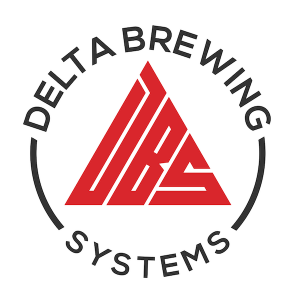Sparging involves rinsing the grain of residual sugar once the mash is complete, and it’s widely accepted that this should be done with water that’s around 170°F/77°C, as any hotter can lead to tannin extraction while cooler sparge water can reduce sugar extraction. This week, we go over exBEERiments looking at the impact sparging with both cool and boiling water has on the finished product.
The Brülosophy Show: Impact Sparge Water Temperature Has On Beer Quality | exBEERiment
Facebook
Twitter
LinkedIn
Sign up to be notified when we publish new content!
Thank you to our sponsors!
Brülosophy is a participant in the Amazon Services LLC Associates Program, an affiliate advertising program designed to provide a means for us to earn fees by linking to Amazon.com and other affiliated sites.











12 thoughts on “The Brülosophy Show: Impact Sparge Water Temperature Has On Beer Quality | exBEERiment”
Rarely sparge. When I do, it’s at tap hot water temp – 120+/-.
I have two Mash and Boil units, now I’ll heat my sparge water to almost boiling, saving me some time on brew day now.
When I’m brewing two beers at the same time, I do what Will describes, heat thh whole volume of water then drain my sparge water into a cooler.
I have been brewing since 1985, and I have read about (and attended courses) on brewing over the years. So many “theories” that were once the “gospel” are now debunked, and some things that not important suddenly are very important . Some of it was always junk science and some have been changed due to new techniques, new processes, new recipes, new equipment, and new types of (modified) grains and adjuncts. I have been made fun of over the years because I did not subscribe to a lot of these theories, but now I have been redeemed…
It’s nice to see yet another example where ease of process and perhaps commercial efficiency is the true driver for the homebrew process dogma and not some undesirable end product e.g., tannins, harshness, etc. Having said that, it would be nice to see an exBEERiment how pH (5.0 vs. 6.5) affects perceptible tannin extraction at elevated sparge temps. Maybe it’s already been done?
I sparge with water between about 150°F and 180°. Mostly I just want my boil to start relatively quickly. Occasionally I decoct, so I’ve never worried about sparging too hot.
I’m with you on that.
I fly sparge in a cylindrical cooler and I have found that I need my sparge temp to be 200*+ just to get the actual cooler/grain temp to 170* which is supposed to be the target temp to stop conversion IIRC
Knowing a critical sparge temp isn’t a critical factor is flavor is nice to have confirmed.
As I’ve done many experiments (on different size batches) on measuring the mash temp at different levels within the grain bed while trying different sparge water temps, I believe that unless you raise your entire mash up to a temp of 168-170 then you are going to have varied results in your efficiency regardless of the sparge temp. And although I believe that raising the temp up will, theoretically, lock in your sugars, it’s not the most efficient. And it isn’t easy to do for everyone. To lock in my mash temp sugars and get the best efficiency, I sparge a few degrees higher (depending on batch size and equipment) than my mash temp – as to keep that mash at a consistent temp throughout the entire mash out.
Damn… Why you went video… I loved reading you… 😭
We still publish articles, even on the video content, just at different times 🙂
I thought I was the only one. Watching someone take 12-15 minutes to say 5 minutes worth of information is the YouTube equivalent of reading the five pages of preamble on a recipe blog. I can’t watch these.
When I started brewing all-grain, I didn’t know any better (I didn’t read) than to use boiling water. I never tasted any astringency and have since not been too particular about sparging with water that is above 170.